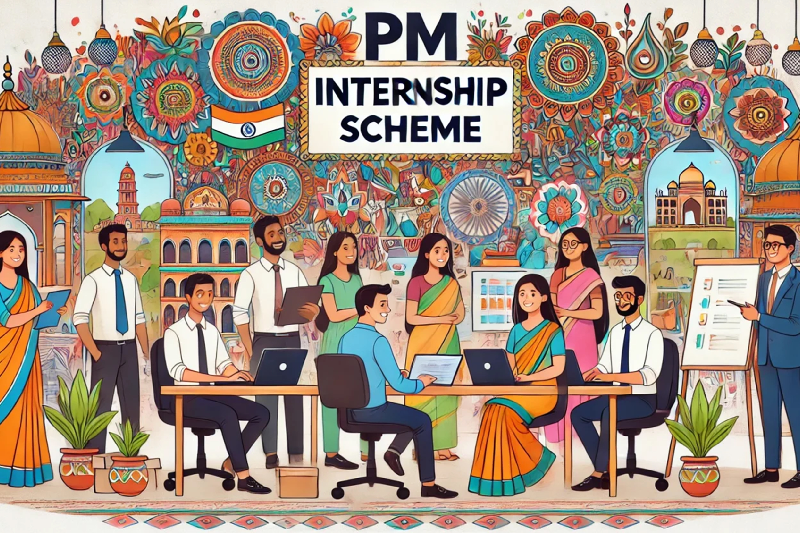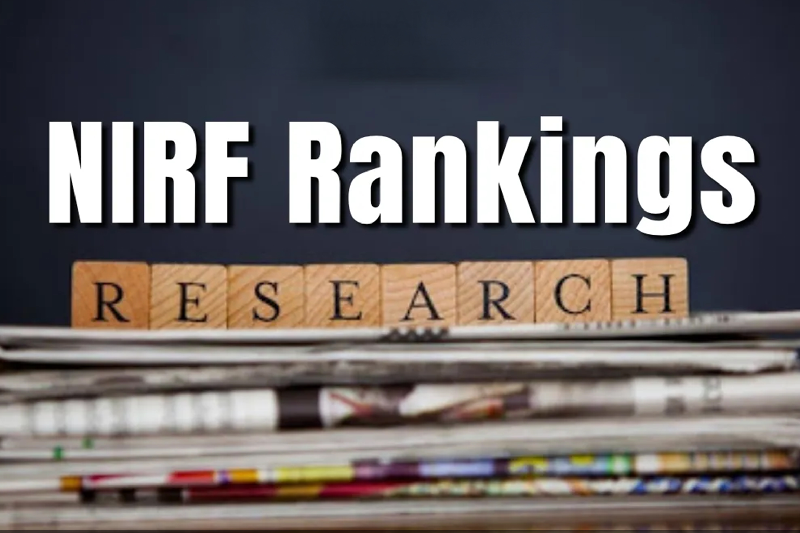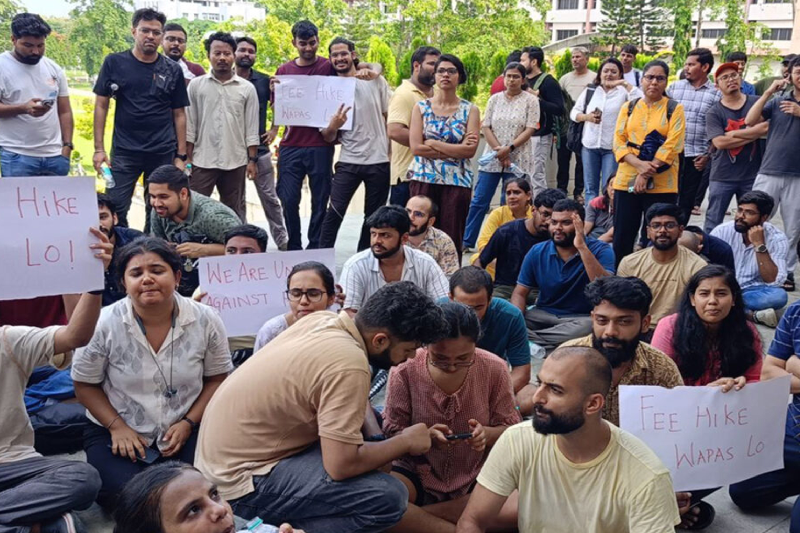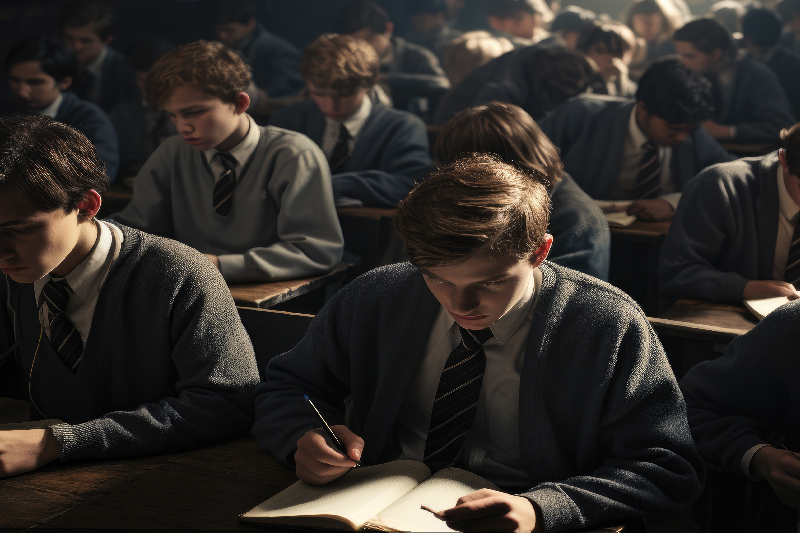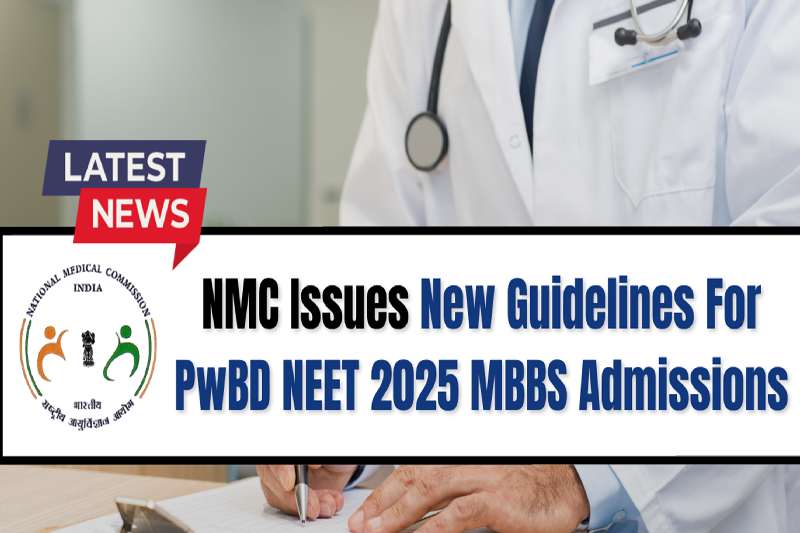
New MCC Guidelines for PwBD Candidates in NEET UG 2025: What You Need to Know
The Medical Counselling Committee (MCC) has released updated guidelines for the NEET UG 2025 admissions process, particularly targeting candidates applying under the PwBD (Persons with Benchmark Disabilities) category. These new instructions, which follow a Supreme Court order and new directives from the National Medical Commission (NMC), are set to ensure a fairer and more accurate evaluation of disabilities. The guidelines clarify the process and documents required to qualify for reserved seats under the PwBD quota, ensuring that students with disabilities are given an equal opportunity to pursue MBBS courses.
Changes in NEET UG 2025 Guidelines:
The MCC’s decision to issue fresh rules stems from a Supreme Court ruling in the case of Om Rathod vs. Union of India. This ruling called for an update in the way disabilities are assessed for the purpose of admission to MBBS courses. To comply with the ruling, the NMC has revised its disability evaluation framework.
The new guidelines focus on a functional competence model, emphasizing a candidate's ability to perform medical tasks rather than solely assessing the degree of disability. This approach aligns with the 2016 disability rights law and a recent 2024 notification issued by the Ministry of Social Justice and Empowerment. The goal is to make the admission process more transparent and inclusive.
Eligibility Criteria for PwBD Candidates:
For PwBD candidates to be eligible for admission under the reserved quota, they must meet the following conditions:
- NEET UG 2025 Qualification: The candidate must qualify in NEET UG 2025 and meet the general eligibility requirements for medical admissions.
- UDID Card: Candidates must possess a valid UDID card (Yellow or above) issued by the Department of Empowerment of Persons with Disabilities (DEPwD). The Yellow card or higher status is required, except in cases of visual disabilities.
- Self-Certified Affidavit: A self-certified affidavit must be submitted, detailing the type of disability and supporting the eligibility under the PwBD category (Appendix A to F).
- Medical Assessment: Candidates must undergo a medical assessment at one of the 16 MCC-designated disability centres to ensure that the functional abilities required for a medical career are met.
Required Documents for Disability Certification:
When visiting a disability certification centre, PwBD candidates must carry the following documents:
- NEET UG 2025 Result: Proof of having appeared for NEET UG 2025.
- UDID Card: A valid UDID card (Yellow category or above). Visual disabilities, however, are excluded from this requirement.
- Self-Certification Form: A completed self-certification form (Appendix A) must be submitted.
- Disability Affidavit: An affidavit that corresponds to the specific disability type (Appendix B to F) needs to be provided.
The medical board at the centre will then assess the candidate’s functional capabilities, such as the ability to communicate, use hands, walk, or perform other activities that may be relevant to the practice of medicine.
Focus on Functionality Over Disability Percentage:
One of the significant changes in the NEET UG 2025 guidelines is the shift from evaluating the percentage of disability to assessing functional competence. The new model allows candidates to demonstrate how well they can perform tasks relevant to medical education and practice. This change aims to provide a clearer and fairer assessment of candidates' ability to pursue a medical degree.
For instance:
- Locomotor Disabilities: Candidates must be assessed for their ability to use their hands, walk, or move independently.
- Hearing Disabilities: For candidates with hearing impairments, an evaluation of their ability to understand medical terminology is essential.
- Mental Health Disabilities: Candidates with mental health conditions will undergo an assessment that focuses on their capacity to function effectively in a clinical environment.
Visual Disabilities and "Other" Conditions:
Candidates with visual impairments must bring their own low-vision aids (LVAs) to the disability assessment centre for evaluation. In addition to visual disabilities, conditions like Thalassemia, Hemophilia, Autism, and Mental Illness must be accompanied by the relevant self-certification (Appendix A) and specific affidavits (Appendices B to F).
State Quota and Certification Validity:
- The disability certificate issued by an MCC-approved centre will be valid only for the academic session of 2025–2026.
- For candidates applying for seats under the State Quota (85%), certificates can be obtained from State Disability Boards. However, these certificates must also follow the same NMC guidelines to ensure compliance with the national framework.
Where to Get Certified?
Candidates must visit one of the designated disability certification centres to get their assessments completed. Some of the key centres include:
- Safdarjung Hospital (Delhi)
- IPGMER (Kolkata)
- Grant Medical College (Mumbai)
- AIIMS Nagpur
- Lady Hardinge Medical College (Delhi)
- AIISH Mysuru (for hearing and speech disabilities)
The full list of certification centres can be found in the MCC Annexure-1 of the official notification.
Final Takeaway:
The new guidelines by the MCC aim to make the NEET UG 2025 admission process more inclusive and accessible for students with disabilities. The shift to assessing functional competence over percentage-based disability evaluation is a progressive move that ensures candidates are fairly evaluated for their ability to succeed in medical education and practice. Only candidates who obtain a fresh disability certificate from an MCC-approved centre will be eligible to apply under the PwBD quota for All India Quota (AIQ) seats.
Additionally, the MCC plans to expand the number of disability assessment centres to ensure greater accessibility for PwBD candidates. With these changes, the MCC hopes to create a more transparent, equitable, and inclusive environment for candidates applying for MBBS admission under the PwBD quota.
